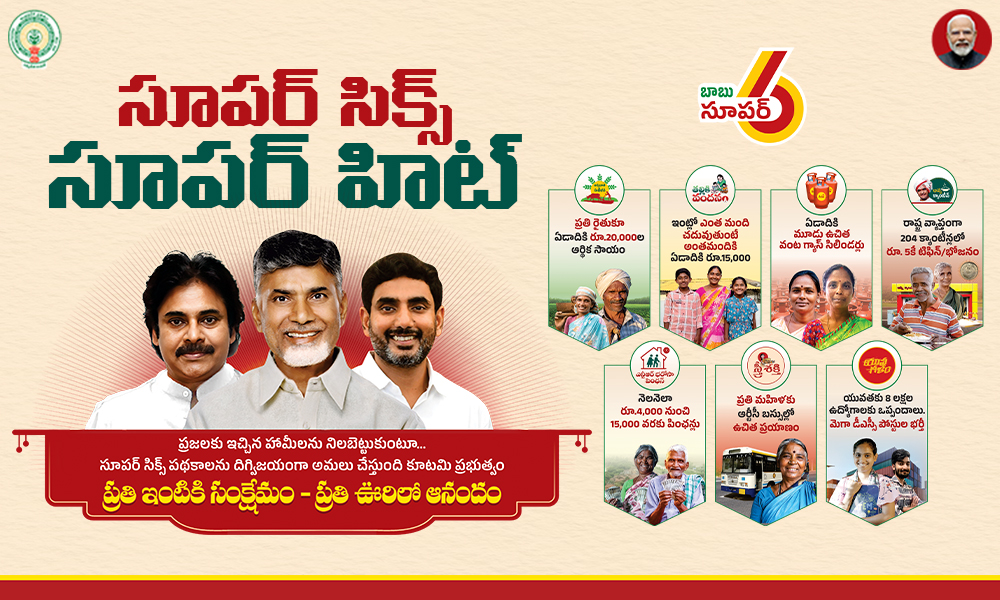Andhra Pradesh and Odisha assembly elections are held simultaneously with Lok Sabha elections on 13 May.
Published May 03, 2024 | 11:43 AM ⚊ Updated May 03, 2024 | 12:13 PM

Vote. (Representational/ iStock)
By Gopavajhala Diwakar
The decades-long territorial dispute over Kotia villages, nestled in the picturesque hills of Eastern Ghats along the border of Andhra Pradesh and Odisha, has once again come to the fore during the ongoing general elections across the nation.
With territorial rights being claimed by both the states, the matter is currently in the Supreme Court.
People of the village enjoy voting rights in both states, granting them the unique privilege of casting their vote in both states.
Geographically situated between the Araku Lok Sabha constituency on the Andhra Pradesh side and Koraput on the Odisha side, the Kotia villages have become the focal point of competition between the two states.
Both Andhra Pradesh and Odisha vie to extend various welfare measures to these 21 villages, each seeking to demonstrate its commitment to the well-being of the residents.
However, the upcoming challenge lies in the fact that the polling date falls on 13 May in both states, compelling voters to make a decision as to where to exercise their franchise.
AP and Odisha assembly elections are held simultaneously with Lok Sabha polls on 13 May.
Underscoring the pressing need for a resolution to this impending crisis, the district officials of Parvathipuram Manyam district from the AP side and Koraput district on the other side have initiated the talks for a smooth conduct of polls, officials said.
According to C Vishnu Charan, Project Officer of Integrated Tribal Development Agency (ITDA) of Parvathipuram, who is also the Returning Officer for the Saluru assembly segment under the Araku Lok Sabha seat, there are about 2700 voters in all those 21 habitations which come under nine Gram Panchayats.
During the 2019 polls, the authorities had set up polling stations outside the Kotia region due to the absence of a pucca government building.
“Basically, these people have voter ID cards from both the states. The Odisha government has issued the epic cards. AP government has also issued. So as long as the voting dates are on different dates, then it is not an issue. These people can go to Koraput side and also our side, and they can vote twice,” he told PTI.
Most of the villagers have cast their ballots on both sides during local body elections.
A visit to any village gives a glimpse of signboards in Odia as well as Telugu. While the AP Girijan Cooperative Society office has Telugu name, its Odisha counterpart will have their language.
Thondangi Lakshmi, a resident of Doll Bhadra said she was allotted a house by the Odisha government while the power line and free electricity is being offered by AP.
Dool Bhadra also has two schools, one in Odia and the other in Telugu medium and two water tanks constructed by both the states.
The villagers are free to collect free rice from both the government and when it comes to old age pensions, the AP government provides ₹3000 while the other offers ₹1000, the villagers said.
“If given a chance my family would like to be part of Andhra Pradesh,” a villager of Nerla Valasa said.
Gorla Satyavathi, Sarpach of Sarika village alleged that during the local body elections in Andhra Pradesh in 2022, the Odisha police had created obstacles for voters who were coming to exercise their franchise.
A police official of the district said the villagers are free to approach any police station to file a complaint, if any.
(Disclaimer: The headline, subheads, and intro of this report along with the photos may have been reworked by South First. The rest of the content is from a syndicated feed, and has been edited for style.)

